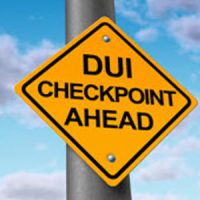Some Crucial Information About Field Sobriety Tests

When law enforcement officers suspect a driver is driving under the influence, they will stop them to evaluate their sobriety. Generally, law enforcement officers at New York DUI checkpoints rely on two testing methods to determine whether a driver is driving under the influence: breath tests and field sobriety tests. After administering a test, an officer will use the results to determine if the driver they pulled over was driving under the influence. In this article, we share some crucial information about field sobriety tests.
Commonly Administered Field Sobriety Tests
Police officers may ask drivers to perform any number of field sobriety tests. However, there are three commonly administered field sobriety tests. They are;
- The one-leg stand test: In this test, a police officer will ask you to stand on one foot for a particular amount of time while holding your opposite foot. If, for example, you hold onto something for balance, the officer will conclude that you are intoxicated.
- The horizontal gaze nystagmus test: In this test, a police officer will have you following, for example, their finger as they move it across your field of vision. If you cannot follow the movement correctly or your eyes involuntarily twitch or move, the police officer will conclude that you are intoxicated.
- The walk-and-turn test: In this test, an officer will ask you to walk a particular number of steps in a line, turn around, and walk in the opposite direction. If, for example, you lose balance or take more steps than you were asked to, the officer will conclude that you are intoxicated.
Field Sobriety Tests Are Voluntary
An officer might try to convince you that you are required by law to take a field sobriety test. This is not true. Field sobriety tests are voluntary. According to New York Law, you are required to take a breath or chemical test but not a field sobriety test. You cannot be forced to take a field sobriety test. And refusing to take a field sobriety test does not attract consequences, as is the case with refusing to take a breath or chemical test.
Even a Sober Person Can Fail a Field Sobriety Test
Field sobriety tests are criticized as subjective and unreliable. Even a sober driver can fail a field sobriety test. For example, you could fail a field sobriety test even if you are sober if you have a medical condition such as muscle tremors, vision impairment, or vertigo. Also, the conditions surrounding a field sobriety test can affect the results. For instance, if the road is uneven or slippery, you may fail a field sobriety test even if you are sober.
Fighting the Results of a Field Sobriety Test
A qualified attorney can help you fight the results of a field sobriety test from being used as evidence against you. For instance, if you failed a field sobriety test due to your medical attention, an attorney can help you fight the inaccurate results.
Legal Help Is Available
If you find yourself in a situation where you need help from a DUI/DWUI/DWAI attorney, do not hesitate to contact our NYC DUI/DWUI/DWAI attorney, Mark I. Cohen, Esq.
Source:
nhtsa.gov/sites/nhtsa.gov/files/documents/sfst_ig_refresher_manual.pdf
